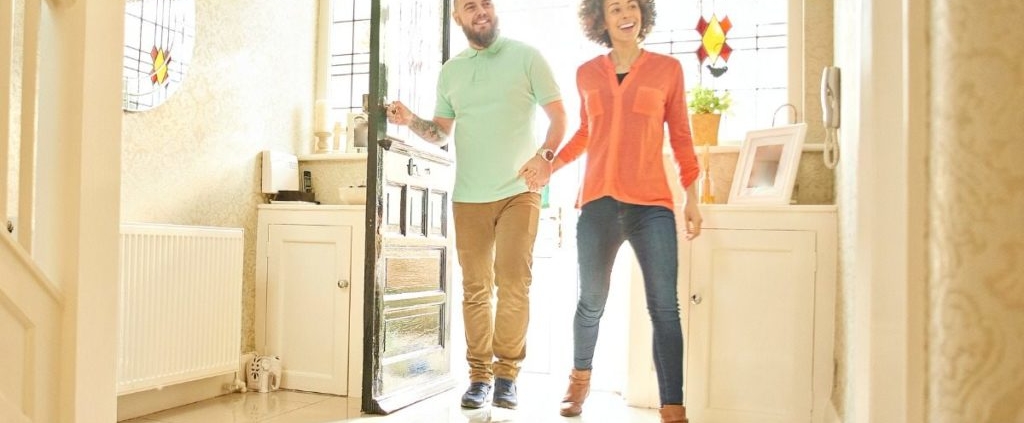How Much Does It Cost to Sell My Home?
When home sellers put their property on the market, it is frequently with the innate expectation that they’ll be earning a lot of money on this transaction. While the ultimate goal of selling a home is certainly to make a good profit – this is what makes property such an attractive investment opportunity for so many business moguls all across the globe – a good profit only comes once the home has been sold. Even then, these profits will need to cover some of the costs associated with the sale of the property.
If you are a first-time home seller that is thinking of putting your property on the market, you should keep the costs of selling a home in mind when looking at your budget, especially insofar as it pertains to the property you’re looking to acquire after selling your current residence.
The costs of selling your home
While selling a home does hold the potential for making money, sellers must always remember that, aside from the administrative costs associated with transferring the ownership of a property, there are additional fees that will come into play to ensure the sale.
Conveyancing fees
Selling a home isn’t as simple as just handing over the keys and receiving an electronic transfer, unfortunately. As such, legal expenses come into play when transferring the ownership of property to the buyer. A property conveyance or solicitor will manage this process. Conveyancing costs will include things like preparing the contract, the settlement of the sale of the property, as well as liaising with the buyer’s legal representative.
Sellers have to remember that conveyancing costs are unavoidable when selling the home, and have to plan as such. Sellers can budget between $800 and $2000 in this regard, as costs vary from state to state and city to city.
Marketing costs
You need not be a property expert to realise the importance of effective marketing in the modern age. Of course, this means utilising the many online property portals available today. In this regard, putting the home in the best possible light in the online sphere is key to grabbing the attention of potential buyers as they are browsing through various other listings of comparable properties in your city or suburb.
As this is the first impression prospective buyers will get of the home, your property really needs to shine and stand out among the rest when it is listed online. Before even listing the home, though, it is important to touch it up by undertaking renovations and repairs, should there be any required – ask your agent about what will add value to the home and deliver the biggest return on investment. Most real estate agents will also recommend that you stage the home in order to make it appeal to the broadest possible group of potential buyers. Read on to learn a bit more about home staging later in this article.
Let your real estate agent recommend a good property photographer to get some eye-catching shots of your home. While a property photographer may be an unexpected expense, good photos make all the difference online. You’ve probably experienced how vastly bad photos can influence one’s opinion about a property.
Ask your real estate agent what platforms and portals they will use to market your home, and whether any of these will add to the bill the agency charges you. Luckily, lots of these platforms (social media, for example) are free, but wildly effective in spreading the message of your home’s impending sale to a large audience. Also enquire as to whether an additional marketing fee will be charged by the real estate agency. Averaging between $5000 and $8000 dollars, some agencies offer marketing packages with all the trimmings, including floor plans, professional photography, signboards, advertising copy and online advertising packages.
When considering the marketing costs you pay in order to advertise your property, always remember that a larger buyer pool equals more interest and more room to negotiate about a higher selling price. Ultimately, you want to market as widely as possible if you are to get the best possible selling price – the profits you earn at the end will make up for what you spend now.
Agents’ fees and bonuses
Real estate agents charge commission for the services they provide with regards to the sale of the property. This commission may be fixed or tiered, based on what the agreement between the seller and the agent is, and is part and parcel of the fees you pay when selling your property. With this being said, it is probably the most worthwhile fee associated with selling your property, and yields big returns for most sellers.
Depending on what commission structure is decided on, a bonus may also be paid to agents upon the successful sale of the property. Should the seller and agent agree on a fixed commission rate, this will not be applicable, as the commission percentage the agent charges does not change, even if the price that the property sells for is higher.
However, if the agent and seller agree on a tiered commission structure, it may well entail paying a little more commission when the home is sold for a price that is above a certain amount. This is because real estate agents on a tiered commission structure stand to earn a greater percentage of the ultimate selling price, based on an agreed-upon sliding scale. This incentivises agents to get very high prices on the properties they market – this is also something that can greatly benefit sellers.
Lender fees
Depending on the agreement which is in place between the home seller and the lender they used to secure the capital to buy their property, some lenders may charge an early exit fee if the seller is paying off their home loan in advance. This discharge fee can range between $150 and $1500, depending on the lender. This process usually takes between two and three weeks, and is done when the property sale has officially gone through.
Home staging and inspection fees
Your real estate agent is likely to recommend that you enlist the services of a professional home stager to make the home appeal to the biggest possible group of buyers. Home staging entails setting up the interior in a way that helps potential buyers to imagine themselves in the space, and this usually means putting away any sentimental or religious items that may influence the way prospective buyers see the property. While all of this may seem very simple, home stagers know exactly what speaks to buyers, and as such, provide a valuable service to sellers.
Inspection fees will be applicable for most sellers, as buyers are likely to insist on a home inspection before signing the sales agreement. Home inspections point out any flaws of the property, and will negate whether repairs need to be made before the sale of the property is completed.
Conclusion
There are a number of unavoidable costs that homeowners have to plan for when they decide to put their property on the market. These stand separately from some other hidden costs that may come into play when the property is prepared for the market, which may add value to the property – things like renovations and repairs to the property.
Conveyancing fees are included in some of these unavoidable costs. Conveyancing fees pertain to the cost of the transfer of ownership of a property, as well as preparation of the contract, liaising with the legal representative that the buyer is using, and the ultimate settlement of the property.
Another unavoidable fee is the cost associated with the marketing of the property. Some real estate agencies do not charge extra for marketing, but others provide comprehensive marketing packages that include professional photography, floor plans, signboards, copywriting and premium online marketing packages. Speak to your real estate agent about what extra charges related to the marketing there might be, and whether these will be charged on top of the commission that the agent earns on the sale of the property.
Of course, sellers who opt to make use of the services of a real estate agent will have to pay agents’ commission – this will be paid either according to a tiered or on a fixed scale, which is decided on during the initial discussions with the agent.
Lender fees might be on the cards, should the seller pay off their home loan in advance, but these do usually not come to more than $1500, depending on the lender.
Sellers must also prepare to pay for the home to be staged and inspected. The former will make the home more appealing to a larger group of buyers, whilst the latter will put buyers’ hearts at ease about what they are investing in.
Are you still looking for an agent that recognises your needs and budget constraints? Let Perfect Agent recommend the right agent for you in a jiffy! Contact us today to find out more.




